- Home
- Robert Rankin
The Da-Da-De-Da-Da Code Page 16
The Da-Da-De-Da-Da Code Read online
Page 16
‘Oh, come on,’ said Jonny. ‘That is somewhat disingenuous.’
‘Jonny,’ said Mr Giggles, ‘I really have no idea what is going on in that head of yours. Is it all that gibberish Hari Hawtrey spun you, that you are some lone hero upon a sacred quest? What do you think is going to happen here? Are terrorists going to menace the conference? Are you going to do a Bruce Willis and save them? You don’t even own a vest.’
‘I didn’t mention terrorists,’ said Jonny. ‘Where did you get the idea of terrorists from?’
‘Well, if not terrorists, then what?’
‘You’re doing all the theorizing,’ said Jonny. ‘I haven’t said anything except that I do not believe that this is a coincidence. Perhaps I am being somewhat self-obsessed, but I do believe that at last my life has some kind of purpose.’
‘It does – you’re a good musician. Tell you what, go back to Paul’s and spend the day there, then do the gig tonight – what do you say to that?’
‘And tomorrow?’
‘A holiday abroad.’
‘I think not,’ said Jonny. ‘To quote you, “I think I’ll stick around for a while.” Ah,’ and Jonny pushed upon a panel, ‘I think we’re in the storerooms.’
And they were.
‘Now,’ said Jonny, entering a storeroom and sliding the secret something that disguised the passage’s entrance back into place, ‘I’d like to take another look at that printing press.’
‘Why?’ asked Mr Giggles.
But Jonny didn’t reply.
Jonny began to root about amongst the things in the storeroom.
‘I don’t know why you’re wasting your time with this,’ said Mr Giggles.
‘So you think I should get out of here at once?’
‘Absolutely, yes.’
‘Then I’ll continue to search about.’
‘Simply to be contrary?’
‘If you have nothing pertinent to add.’
‘I know. I know.’
There were a great many packing cases in the storeroom. Jonny took up a crowbar that lay, as they so often do, handily near at hand, and attacked the lid of the nearest.
‘What are you doing?’ squealed Mr Giggles. ‘You’ll damage valuable exhibits with your big silly hands.’
‘Not exhibits,’ said Jonny. ‘The labels on the cases say “EFFECTS FROM THE ESTATE OF THE LATE JAMES CRAWFORD BEQUEATHED TO GUNNERSBURY PARK MUSEUM”. I’ll bet it’s his record collection.’
And it was. Amongst other things.
Jonny opened box after box with Mr Giggles tut-tut-tutting as he did so. Eventually Jonny opened a box and said, ‘What do we have here?’
‘Gramophone records?’
‘More leather-bound notebooks,’ said Jonny. ‘A good many leather-bound notebooks.’
‘More paranoid ramblings,’ muttered Mr Giggles.
Jonny opened a notebook and read what was written within.
REGARDING THE DEVIL’S CHORD
Jonny read.
And then what was written beneath:
The Devil’s chord, also known as the Devil’s Interval, also known as the tritone, augmented fourth or diminished fifth, is an exact bisection of an octave. The octave has throughout history been regarded as a symbol of perfection; consequently the Devil’s Interval was seen (and indeed heard) to be the most harsh and discordant interval, and as it is the exact antithesis or opposite of perfection (the octave, or God) this interval has gained a reputation of being demonic. In early church music (from which most Western music springs) only the intervals of a perfect fourth, perfect fifth and octave were permitted because they gave a perfect or pure harmony as befitted divine worship and instilled a sense of stability and resolution in the listener. The Devil’s Interval gives rise in the listener to a sense of unease, or restlessness, which needs resolution. In modern-day music, the tritone is used ubiquitously and is often utilised as a pivot, to drive the music on into alternative harmonic realms. It is used particularly in jazz, pop and rock, all of which have been denounced at one time or another as the Devil’s Music. And, seemingly, it would appear, in the light of this, not without good cause.
‘Now, that is interesting,’ said Jonny.
‘Really?’ said Mr Giggles. ‘In what way would that be?’
‘I’m a musician,’ said Jonny, ‘but I’ve never heard of the Devil’s Interval before. But thinking about it, it’s used in all kinds of atmospheric music, like background music in horror films.’
‘It’s used in the title sequence of The Simpsons,’ said Mr Giggles.*
‘So you know all about the Devil’s Interval?’
‘I know about most things,’ said Mr Giggles, ‘which is why you should pay attention to what I say to you. You’ll find that the Devil’s Interval is mostly used in the lower registers of the tonic scale. Your heavy metallers sing in deep, deep voices, don’t they?’
Jonny nodded. They did.
‘Because big, deep bass notes are associated with evil, way down deep, like the location of Hell. And angelic voices are high – your sopranos and your castrati of, course, voices soaring up to Heaven. And right in the middle, halfway between Heaven and Hell, you have Mankind. Right here on Earth. And where is most music of mankind based? Right around middle C on the piano. Your basic pop song has your basic “three-chord trick” – G, C and D seventh. Popular music, middle-of-the-road music, middle-of-the-range music. Music of the common man. And they’ll all have your “Da-da-de-da-da” in them somewhere. It’s the heartbeat of popular music. A tonal key that opens a musical door.’
‘I’m impressed,’ said Jonny. ‘You’re actually talking sense there.’
‘It’s elementary stuff – any music student could tell you all about it.’
‘Then I’m not impressed,’ said Jonny. ‘Thanks for putting me straight.’
‘Mind you,’ said Mr Giggles, ‘there’s always a n****r in the woodpile, as it were.’
‘Please don’t start all that again,’ Jonny told him.
‘One piece of music that doesn’t fit. A piece of classical music with lots of high notes and more Devil’s Intervals per bar than any other piece.’
‘And what’s that?’ Jonny asked.
“The Dance of the Sugar-Plum Fairy,” said Mr Giggles.*
Jonny was rooting some more in a packing case. ‘Well, aha,’ said he. ‘Or should I say, eureka?’
Mr Giggles feigned lack of interest.
‘Laptop,’ Jonny said. ‘James Crawford’s laptop. I’ll bet he typed up all his theories from his notebooks onto his laptop.’
‘And so you’re going to steal it?’
‘I’m going to borrow it. But first—’ And Jonny took to replacing the packing-case lids and hammering back their nails with the crowbar. ‘—best not leave any evidence that any crime has been committed here, eh?’
And as luck, or fate, or coincidence, or whatever would have it, just as Jonny had hammered the last nail into place—
‘What is that?’ said Jonny, and he listened.
A key was being turned in the storeroom door.
‘Up and away,’ whispered Jonny, and he took to the secret passage.
Two men entered the storeroom. One was young and firm and assertive; the other was older, and complaining.
‘I’m not a porter,’ this older one complained, and Jonny knew that voice. ‘I’m a park ranger,’ said Ranger Connor, ‘and it’s not my job to shift boxes about.’
‘How very unpatriotic of you,’ said the younger man. Jonny didn’t recognise the voice. And he couldn’t see the younger man, so he couldn’t see that he was wearing a black suit, black tie, white shirt, black shoes and dark sunglasses. He spoke with the accent known as posh. He spoke with the voice of authority.
‘I commandeered you as you were leaving the Big House because you carry yourself with military bearing—’
‘Yes,’ flustered Ranger Connor. ‘Well.’
‘And I said to myself, this chap looks like a Sandhurst t
ype, probably here on Special Ops.’
‘Well,’ went Ranger Connor, with a tad less fluster.
‘Give him a task that is top priority and a man such as this can be trusted to carry it out. For Queen and country, doncha know.’
‘Well,’ went the ranger, fluster-free.
‘Item in one of these cases required. Very important, security of the Crown and all that sort of thing. Just require you to go through the crates, fish the fellow out and bring it up to me. I have some business with woman on reception desk.’
And I’ll just bet I know what kind, thought Jonny.
‘Well,’ went Ranger Connor, once more.
‘Laptop computer jobbie,’ said the young toff. ‘Whip it out of the crate and bring it up to me.’
Ranger Connor grunted.
‘Top man,’ said the toff.
Jonny didn’t hear him say it, though, for Jonny had made a strategic withdrawal along the secret passage and out of the Big House and was now sitting beside the ornamental pond, opposite the Doric temple, with the laptop open on his lap.
‘You’d best throw that in the pond,’ advised Mr Giggles. ‘You’re bound to get caught with it and be taken off to prison.’
‘Password,’ said Jonny. ‘I need the password.’
Mr Giggles whistled “Jailhouse Rock”.
‘Now what would his password be?’ Jonny asked.
‘Bum poo?’ said Mr Giggles. ‘Smelly willy, big hairy bottom burps?’
‘And you complained about toilet humour lowering the tone.’
‘Just trying to lighten the situation as you’re clearly doomed. Throw it in the pond and let’s be away.’
Jonny tapped in letters. His guess was rejected.
‘You only get three tries,’ said Mr Giggles.
‘I know,’ said Jonny, who thought hard and tried once more. And failed.
‘One try left,’ said Mr Giggles. ‘Get it over with and let’s get going.’
Jonny drummed his fingers on the laptop. One more try was all he had. There was no telling what secrets the laptop might yield up. None at all, in all probability. But no, that couldn’t be right. The chap with the posh voice wanted the laptop. Security of the Crown, he’d said. There had to be answers. Some key that would open some door.
Jonny smiled and tapped letters into the keyboard.
The laptop screen lit up.
And Mr Giggles said, ‘Oh.’
‘Piece of cake,’ said Jonny.
‘Luck of the damned, more like.’
‘Well, you inspired it,’ said Jonny, ‘with your talk about popular music. Music of the common man. A tonal key that opens a musical door.’
Mr Giggles groaned.
And Jonny said, ‘That’s right.’
‘Da-da-de-da-da,’ said Mr Giggles.
‘Da-da-de-da-da,’ said Jonny.
25
‘Oh my goodness,’ said Jonny Hooker. ‘Oh my goodness me.’
Mr Giggles peered over his shoulder. Jonny could smell his breath.
Jonny slammed the laptop shut. ‘Best put this somewhere safe,’ said Jonny.
‘The pond?’ said Mr Giggles. Jonny shook his head.
‘So what did you see? What did you see?’ Mr Giggles bobbed up and down.
Jonny Hooker ignored him.
‘Come on, Jonny,’ crooned the Monkey Boy. ‘You have no secrets from me.’
‘No secrets?’
Jonny was having a moment. One of those moments. Those moments that you sometimes, although rarely, have, when all sorts of things seem to fall into place. Everything appears to make sense. All becomes clear. And things of that nature, generally. Jonny was having one of those moments. And he wasn’t on drugs or anything.
The image he’d seen on the screen, the breath upon his neck: the two had triggered the one of those moments.
Jonny Hooker arose. ‘On second thoughts,’ said Jonny, ‘I think it would be best if I were to keep this laptop safe.’ He opened his ranger’s jacket and viewed the big poacher’s pocket. Park rangers’ jackets always have big poachers’ pockets. It’s so they can carry the rabbits and suchlike that they catch in their snares. It’s a tradition, or an old charter, or something.
‘So what did you see?’ asked Mr Giggles. ‘Come on, I won’t tell anyone.’
‘That’s a new approach,’ said Jonny. ‘I will tell you one thing that’s on there, top of the alphabetical list: “Apocalypse Blues” by Robert Johnson. Someone might have nicked the original recording from James Crawford’s collection, but obviously not before he was able to put it on his laptop.’
‘Jonny, you’re not—’
‘Thinking to play it? Listen to find our whether it really does have the Devil’s laughter at the end?’
‘Don’t do it, Jonny. I’m begging you not to.’
‘Begging me?’ said Jonny.
‘You’ll die if you hear it.’
‘And you really believe that?’
‘I do, I really do.’
‘I wonder,’ said Jonny.
‘You will die,’ said Mr Giggles. ‘You will die, you will.’
‘But why should I believe you?’ Jonny asked.
‘Because I’m telling the truth and I don’t want you to die.’
‘Because if I die, you die.’
‘And that, yes.’
‘We’ll see,’ said Jonny.
‘No, we will not see. Throw the laptop in the pond. Do it for your own good.’
‘You do sound very definite about this.’
‘I do,’ said Mr Giggles. ‘Listen, if I tell you something, a secret something, will you promise me that you won’t play the record?’
Jonny thought about this proposition. And it was such a lovely day and the birds were singing and he was having such a good time, such an exciting time, and feeling so alive for the very first time in his life, and everything.
And he had just had that moment.
‘All right,’ said Jonny. ‘I’ll promise, as long as what you tell me is worth it.’
‘I think you’ll find it pertinent,’ said Mr Giggles, seating himself next to Jonny.
‘Go on, then.’
And Mr Giggles did so.
‘The dead’ns,’ said Mr Giggles. ‘Doctor Archy, James Crawford, the mystery man with your wallet in his pocket – I know how they died.’
‘They had their heads chopped off,’ said Jonny.
‘Not chopped,’ said Mr Giggles. ‘More like atomised.’
‘Ah,’ said Jonny. ‘The suspect will be a police constable, then.’
‘The suspect is there in that laptop,’ said Mr Giggles. ‘Those men died because they heard the Devil’s laughter. Too much for the human brain. Kaboom, and head all gone.’
‘You’re having a laugh,’ said Jonny Hooker.
‘I wish I was. It’s how they found Hendrix and Morrison and all the rest. They covered it up in the sixties, of course. And Kurt Cobain “shot his head off”. A likely story, eh?’
‘The Twenty-Seven Club,’ said Jonny. ‘They heard the Devil on Johnson’s last recording and—’
‘Kaboom,’ said Mr Giggles. ‘Atomised. Not pretty. So you see, I don’t want this to happen to you.’
‘And don’t you think you might have mentioned this to me earlier?’
‘I told you you’d die if you heard the Devil’s laughter.’
‘But not that you knew how the murder victims had died.’
‘What did it matter? We don’t know who played them the music. Crawford may have put the recording on his laptop, but he had more sense than to play it. He knew what it could do.’
‘Why didn’t he just destroy the original recording?’
‘Perhaps Crawford did. Perhaps it wasn’t stolen. But this is, as I’ve said, the Unholy Grail of music. Johnson’s final recording.’
‘Perhaps he cleaned it up,’ said Jonny, ‘digitally. Removed the Devil’s laughter.’
‘I wouldn’t advise you to check. You saw Crawford�
��s body. His head had been atomised.’
‘Hm’ went Jonny.
‘I don’t like that “Hm”, and don’t go getting any ideas about testing it on a guinea pig in a soundproof room – it won’t work.’
‘Well,’ said Jonny, ‘this is all most interesting. And no doubt pertinent. But I have a pressing engagement.’
‘You do?’ said Mr Giggles.
‘I do,’ said Jonny. ‘Big as my breakfast was, I now fancy lunch. And a pint of King Billy. I’m off to the pub.’
The pub was not on Inspector Westlake’s schedule. He was all gung-ho and well fired-up and filled with motivation. And he was now at the Big House in Gunnersbury Park and having a word at the reception desk.
‘Inspector Westlake,’ said Inspector Westlake, ‘on special secondment from the Bramfield Constabulary, here to supervise the security arrangements for Sunday’s conference.’
‘And what conference would that be?’ Joan asked as she regarded the inspector in the manner known as coquettish.
‘Top secret,’ said Inspector Westlake, giving his nose that certain tap.
‘Which would be why I haven’t been informed of it,’ said Joan. ‘Would you care for a light-up pencil with a dinosaur on the top? We’ve just had a delivery of them. And a great many other such items.’
‘No, madam, I certainly would not.’ Inspector Westlake looked this way and that.
Constable Justice looked the other.
Joan grinned at Constable Justice. ‘Saucy,’ she said as she grinned.
‘A word with your superior, please,’ said Inspector Westlake. ‘Spoke to her earlier on the blower. Countess Vanda by name, pleasant lady, rather posh voice.’
‘I’ll give her a little tinkle,’ said Joan, and she did so: spoke words, received others and put down the phone. ‘She said she’ll be down in just a moment.’
‘Splendid,’ said Inspector Westlake.
‘Little balls,’ said Joan.
‘Madam?’ Inspector Westlake raised his eyebrows.
‘We have little plastic balls,’ said Joan, ‘for sale, here, in the museum shop. They’re new in, too – transparent, they have dinosaurs inside them.’
‘Fascinating,’ said Inspector Westlake, whose foot was beginning to tap.

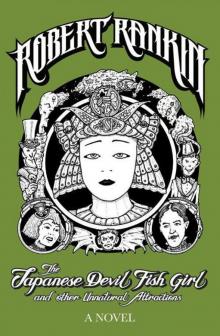 The Japanese Devil Fish Girl and Other Unnatural Attractions
The Japanese Devil Fish Girl and Other Unnatural Attractions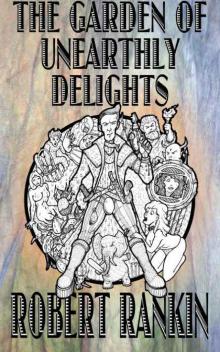 The Garden of Unearthly Delights
The Garden of Unearthly Delights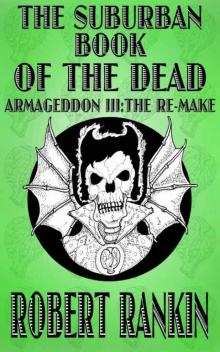 The Suburban Book of the Dead: Armageddon III: The Remake
The Suburban Book of the Dead: Armageddon III: The Remake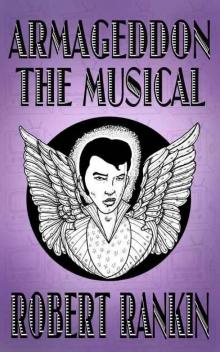 Armageddon_The Musical (Armageddon Trilogy Book 1)
Armageddon_The Musical (Armageddon Trilogy Book 1)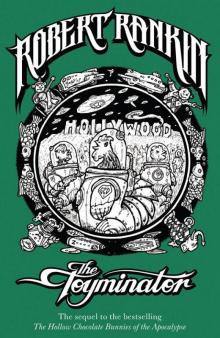 The Toyminator
The Toyminator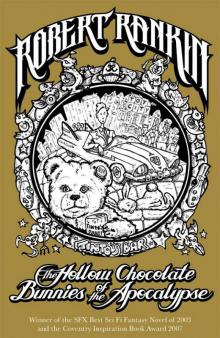 The Hollow Chocolate Bunnies of the Apocalypse
The Hollow Chocolate Bunnies of the Apocalypse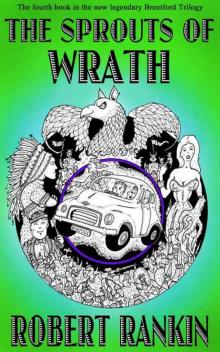 The Sprouts of Wrath
The Sprouts of Wrath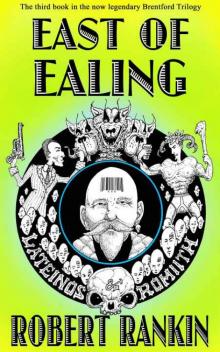 East of Ealing
East of Ealing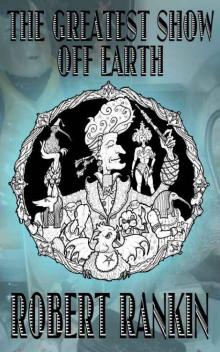 The Greatest Show Off Earth
The Greatest Show Off Earth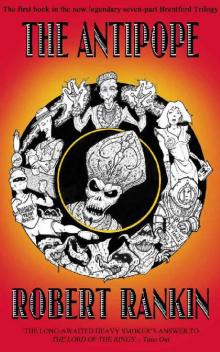 The Antipope
The Antipope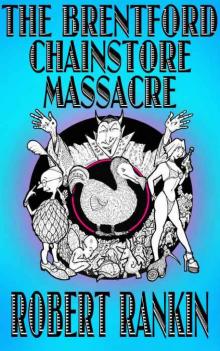 The Brentford Chainstore Massacre
The Brentford Chainstore Massacre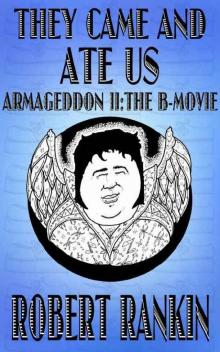 They Came and Ate Us_The B-Movie (Armageddon Trilogy 2)
They Came and Ate Us_The B-Movie (Armageddon Trilogy 2)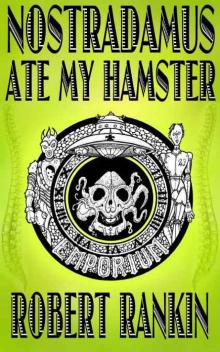 Nostradamus Ate My Hamster
Nostradamus Ate My Hamster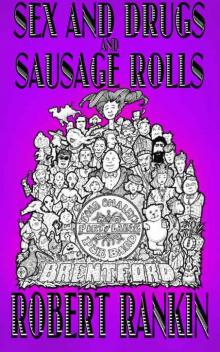 Sex and Drugs and Sausage Rolls
Sex and Drugs and Sausage Rolls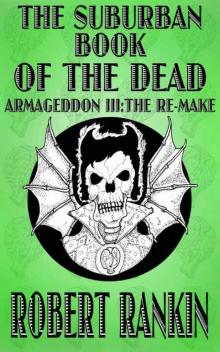 The Suburban Book of the Dead_The Remake (Armageddon Trilogy 3)
The Suburban Book of the Dead_The Remake (Armageddon Trilogy 3)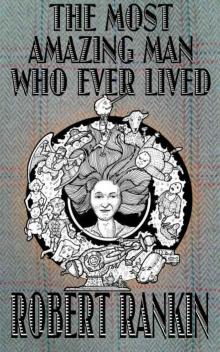 The Most Amazing Man Who Ever Lived
The Most Amazing Man Who Ever Lived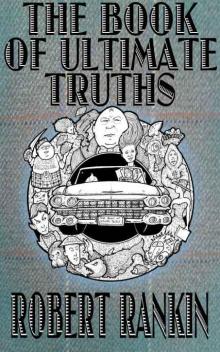 The Book of Ultimate Truths
The Book of Ultimate Truths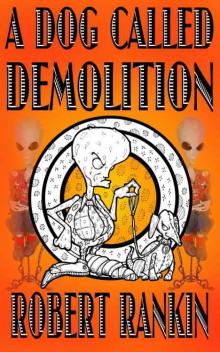 A Dog Called Demolition
A Dog Called Demolition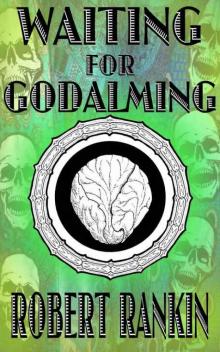 Waiting for Godalming
Waiting for Godalming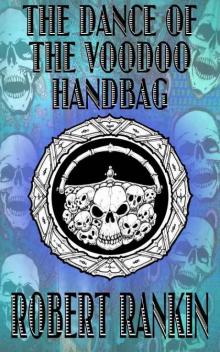 The Dance of the Voodoo Handbag
The Dance of the Voodoo Handbag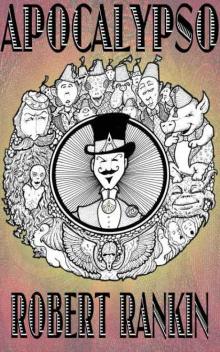 Apocalypso
Apocalypso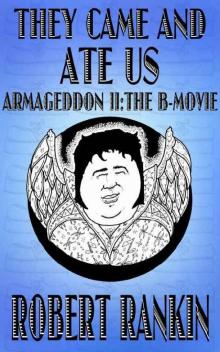 They Came and Ate Us: Armageddon II: The B-Movie
They Came and Ate Us: Armageddon II: The B-Movie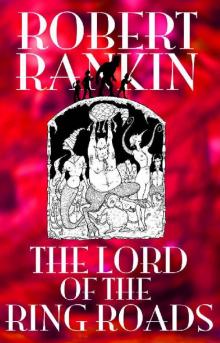 The Lord of the Ring Roads
The Lord of the Ring Roads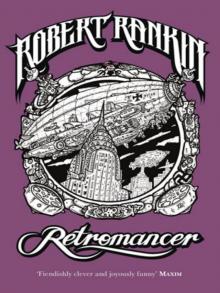 Retromancer
Retromancer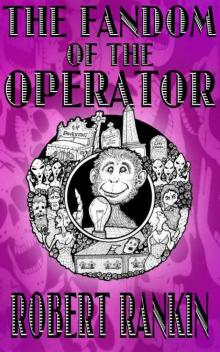 The Fandom of the Operator
The Fandom of the Operator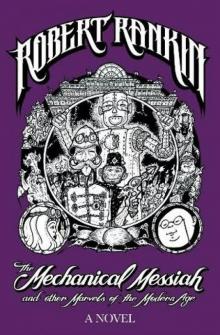 The Mechanical Messiah and Other Marvels of the Modern Age
The Mechanical Messiah and Other Marvels of the Modern Age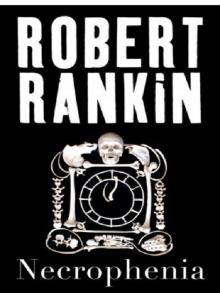 Necrophenia
Necrophenia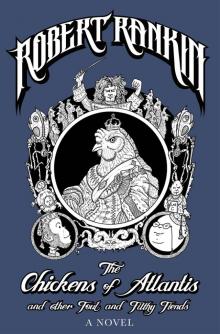 The Chickens of Atlantis and Other Foul and Filthy Fiends
The Chickens of Atlantis and Other Foul and Filthy Fiends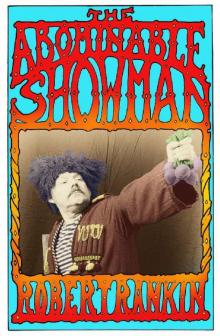 The Abominable Showman
The Abominable Showman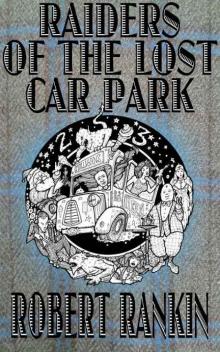 Raiders of the Lost Carpark
Raiders of the Lost Carpark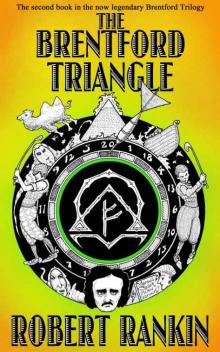 The Brentford Triangle
The Brentford Triangle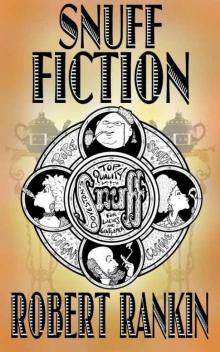 Snuff Fiction
Snuff Fiction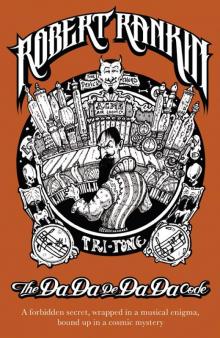 The Da-Da-De-Da-Da Code
The Da-Da-De-Da-Da Code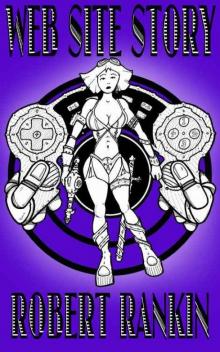 Web Site Story
Web Site Story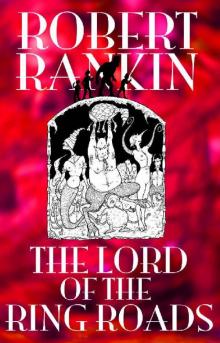 The Lord of the Ring Roads (The Final Brentford Trilogy Book 1)
The Lord of the Ring Roads (The Final Brentford Trilogy Book 1)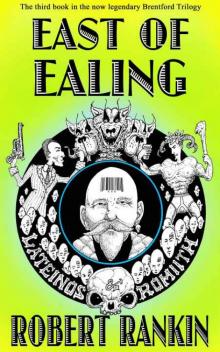 East of Ealing (The Brentford Trilogy Book 3)
East of Ealing (The Brentford Trilogy Book 3)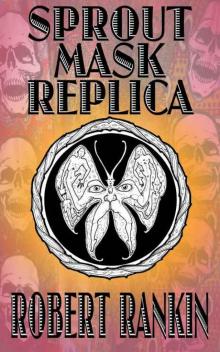 Sprout Mask Replica (Completely Barking Mad Trilogy Book 1)
Sprout Mask Replica (Completely Barking Mad Trilogy Book 1)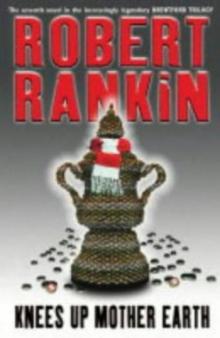 Knees Up Mother Earth bs-7
Knees Up Mother Earth bs-7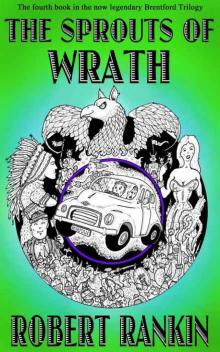 The Sprouts of Wrath (The Brentford Trilogy Book 4)
The Sprouts of Wrath (The Brentford Trilogy Book 4)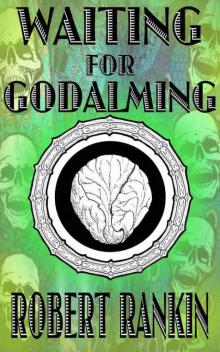 Waiting for Godalming (Completely Barking Mad Trilogy Book 3)
Waiting for Godalming (Completely Barking Mad Trilogy Book 3)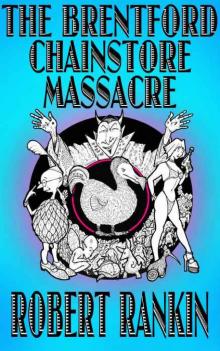 The Brentford Chainstore Massacre (The Brentford Trilogy Book 5)
The Brentford Chainstore Massacre (The Brentford Trilogy Book 5)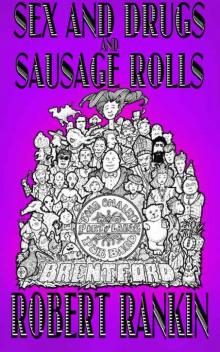 Sex and Drugs and Sausage Rolls (The Brentford Trilogy Book 6)
Sex and Drugs and Sausage Rolls (The Brentford Trilogy Book 6)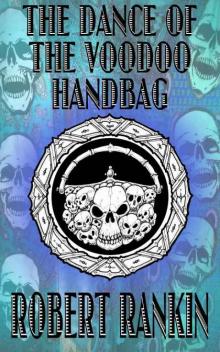 The Dance of the Voodoo Handbag (Completely Barking Mad Trilogy Book 2)
The Dance of the Voodoo Handbag (Completely Barking Mad Trilogy Book 2)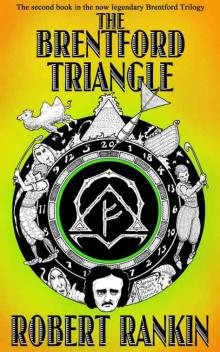 The Brentford Triangle (The Brentford Trilogy Book 2)
The Brentford Triangle (The Brentford Trilogy Book 2)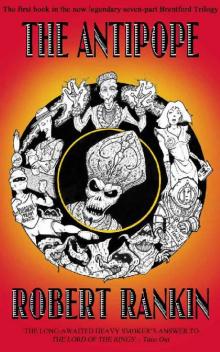 The Antipope (The Brentford Trilogy Book 1)
The Antipope (The Brentford Trilogy Book 1)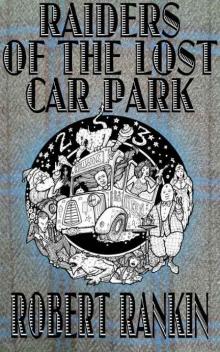 Raiders of the Lost Car Park (The Cornelius Murphy Trilogy Book 2)
Raiders of the Lost Car Park (The Cornelius Murphy Trilogy Book 2)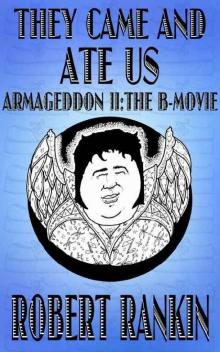 They Came and Ate Us - Armageddon II_The B-Movie (Armageddon Trilogy Book 2)
They Came and Ate Us - Armageddon II_The B-Movie (Armageddon Trilogy Book 2)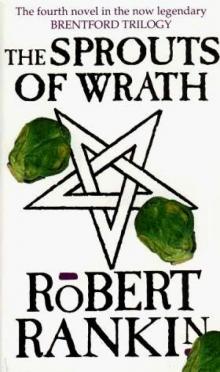 The Sprouts of Wrath bs-4
The Sprouts of Wrath bs-4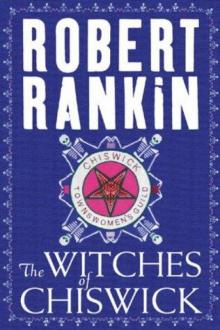 The Witches of Chiswick
The Witches of Chiswick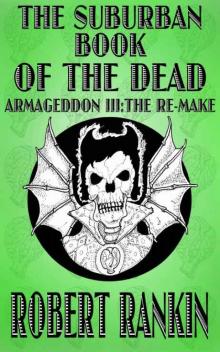 The Suburban Book of the Dead - Armageddon III: The Remake (Armageddon Trilogy 3)
The Suburban Book of the Dead - Armageddon III: The Remake (Armageddon Trilogy 3)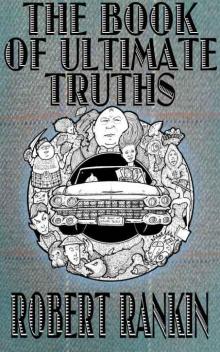 The Book of Ultimate Truths (The Cornelius Murphy Trilogy 1)
The Book of Ultimate Truths (The Cornelius Murphy Trilogy 1)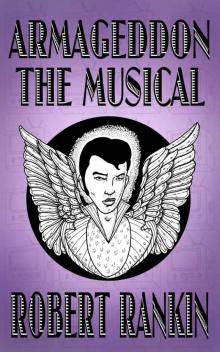 Armageddon: The Musical (Armageddon Trilogy)
Armageddon: The Musical (Armageddon Trilogy)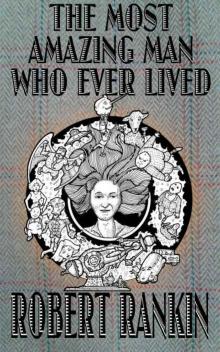 The Most Amazing Man Who Ever Lived (The Cornelius Murphy Trilogy Book 3)
The Most Amazing Man Who Ever Lived (The Cornelius Murphy Trilogy Book 3)